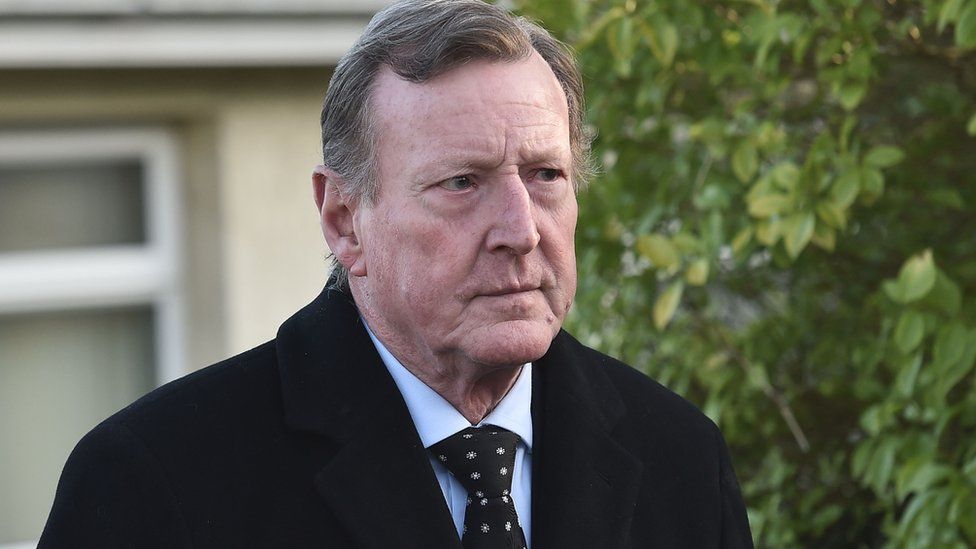ARTICLE AD BOX
 Image source, Pacemaker
Image source, Pacemaker
David Trimble was the first person to serve as first minister of Northern Ireland
Lord Trimble, former first minister of Northern Ireland and Ulster Unionist Party leader, has died.
Lord Trimble, who was 77, led the UUP between 1995 and 2005, and was instrumental in the negotiation of the Good Friday Agreement - the peace deal which ended the worst of Northern Ireland's Troubles.
His efforts won him the Nobel Peace Prize along with SDLP leader John Hume.
Since 2006, he sat in the House of Lords as Baron Trimble of Lisnagarvey.
He was the first person to serve in the role of first minister.
A statement from the UUP said: "It is with great sadness that the family of Lord Trimble announce that he passed away peacefully earlier today following a short illness."
Current UUP leader Doug Beattie described Lord Trimble as a "political giant".
"David Trimble was a man of courage and vision. He chose to grasp the opportunity for peace when it presented itself and sought to end the decades of violence that blighted his beloved Northern Ireland," Mr Beattie said.
"He will forever be associated with the leadership he demonstrated in the negotiations that led up to the 1998 Belfast Agreement.
"The bravery and courage he demonstrated whilst battling his recent illness was typical of the qualities he showed in his political career, at Stormont and at Westminster.
Lord Trimble's political journey took him from a young hardliner in the 1970s to a unionist leader who compromised to help deliver an executive and assembly at Stormont where unionism and nationalism shared power.
He received much praise, including the Nobel Peace Prize, for helping to bring to an end to decades of violence in Northern Ireland.
But he also came in for sustained criticism from others within political unionism, particularly the Democratic Unionist Party (DUP).
He was criticised for agreeing a deal which allowed Sinn Féin - the political wing of the IRA - to enter into the devolved government while the IRA had not decommissioned its weapons.
In 2005, he lost his House of Commons seat to a DUP challenger and went on to enter the House of Lords where he sat as a Conservative Party peer.

 2 years ago
53
2 years ago
53








 English (US) ·
English (US) ·